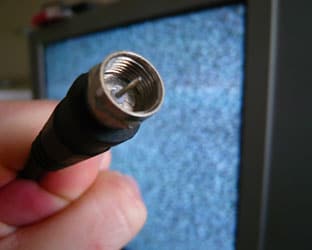Speaking at yet another Congressional hearing on voluntary incentive auctions targeting the television space, NAB President/CEO Gordon Smith thanked members of the House Committee on Energy and Commerce who are trying to include strong protections for broadcasters in any bill that goes up for a vote. Then he asked for even stronger protections.
Appearing before the Committee’s Communications Subcommittee, Smith noted the problems associated with moving 174 stations during the DTV transition, and said that would pale in comparison to the 672 that could face upheaval this time around.
He focused on four key elements that NAB has been working to keep top-of-mind throughout legislative deliberations on this topic.
Smith said, “We ask that broadcasters be given the same opportunity as other industries to innovate with our spectrum, which means preventing the FCC from involuntarily moving stations from the U to V band. Your legislation does that.
“We ask that legislation provide certainty to broadcasters – and those investing in broadcasting – by requiring only one incentive auction for broadcast spectrum. Your proposal does that.
“We ask for reimbursement of station costs associated with relocating broadcast stations. Your legislation does that as well, although there may be a need to adjust the language to achieve the goal of holding harmless all the broadcasters that do not participate in the auction.
“Finally, and most importantly, we ask that legislation preserve viewer access to over-the-air signals by replicating existing station service areas and covered populations. We also want to ensure that signals reach cable and satellite head-ends that rely on over-the-air delivery so that viewers continue to receive their broadcast channels.”
Smith noted the millions of Americans who rely on local over-the-air television, especially in times of emergency, and stated, “For this reason, we would prefer stronger language that directs the FCC to preserve viewer access to stations ‘to the maximum extent possible.’”




